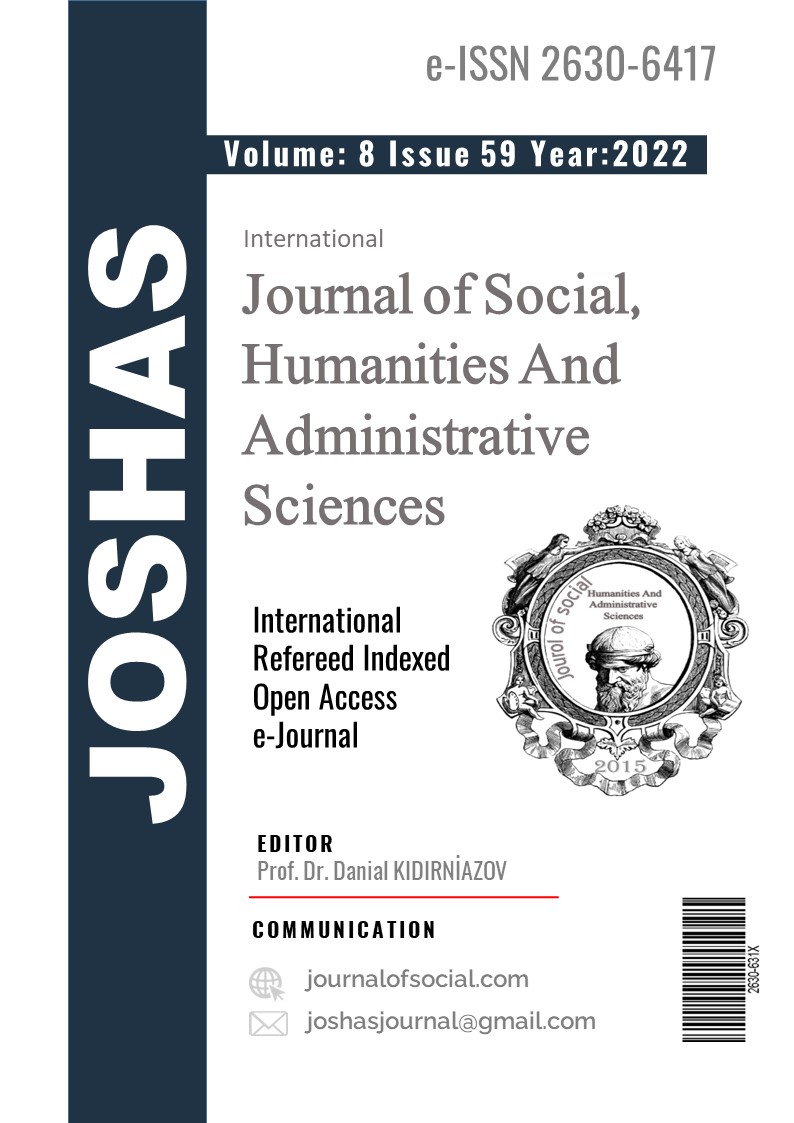Lise Öğrencilerinin Matematik Odaklı Epistemolojik İnançları, Matematik Öz Yeterlik Algıları Ve Matematik Kaygıları Arasındaki İlişki
Author :
Abstract
Bu araştırmanın amacı, matematik odaklı epistemolojik inanç, matematik öz yeterlik algısı ve matematik kaygısı arasındaki ilişkiyi incelemektir. Çalışılan değişkenlerin eş zamanlı olarak değişiminin tespitini amaçlayan ilişkisel tarama modeli kullanılmıştır. 2020-2021 eğitim-öğretim döneminde Kayseri ilindeki amaçlı örnekleme yöntemi ile belirlenen farklı türdeki liselerde okuyan 767 öğrenci araştırmanın örneklemini oluşturmaktadır. Öğrencilere, ''Matematik Odaklı Epistemolojik İnanç Ölçeği (MOEİÖ)'', ''Matematiğe Karşı Öz Yeterlik Algısı Ölçeği'' ve ''Matematik Kaygısı Ölçeği'' uygulanmıştır. Yapılan analizler sonucunda, matematik odaklı epistemolojik inançlar ile matematik öz yeterlik algısı arasında pozitif ve matematik kaygısı ile negatif yönlü, matematik öz yeterlik algısı ile matematik kaygısı arasında ise negatif yönlü ilişki olduğu görülmüştür. Ayrıca çalışılan değişkenlerin birbirlerini yordama düzeyleri incelenmiştir. Elde edilen bulgular ışığında, okul rehberlik servisine öğrenci ve velilerle ortak çalışmalar yürütülmesi, araştırmacılara ise aynı çalışmanın karma araştırma olarak yürütülmesi gibi birçok önerilerde bulunulmuştur.
Keywords
Abstract
The purpose of this research is to study the relationship between maths-based epistemological belief, mathematical self-proficiency perception and maths anxiety. A relational scan model is used to determine the simultaneous variation of the working variables. In 2020-2021 academic periods, 767 students who study in different types of high schools determined by the purpose sampling method in Kayseri province are examples of research. The students were applied to the "Mathematics oriented Epistemological belief Scale (MOEIO)", "Self-Proficiency perception Scale against Mathematics" and "Mathematics anxiety Scale". The analysis showed that there was a positive and negative relationship between maths-based epistemological beliefs and a perception of maths self-sufficiency and a negative-directional relationship between maths anxiety and maths self-sufficiency perception. Also, the levels of the working variables to process each other have been reviewed. In the light of the findings, many recommendations were made to the school guidance service, including the conduct of collaborations with students and parents, and the research of the same study as the mixed research.
